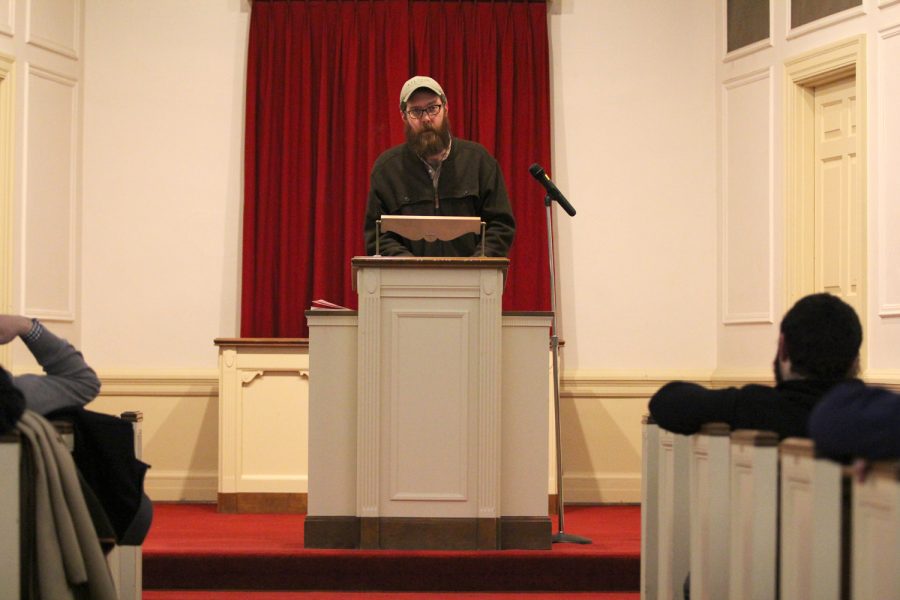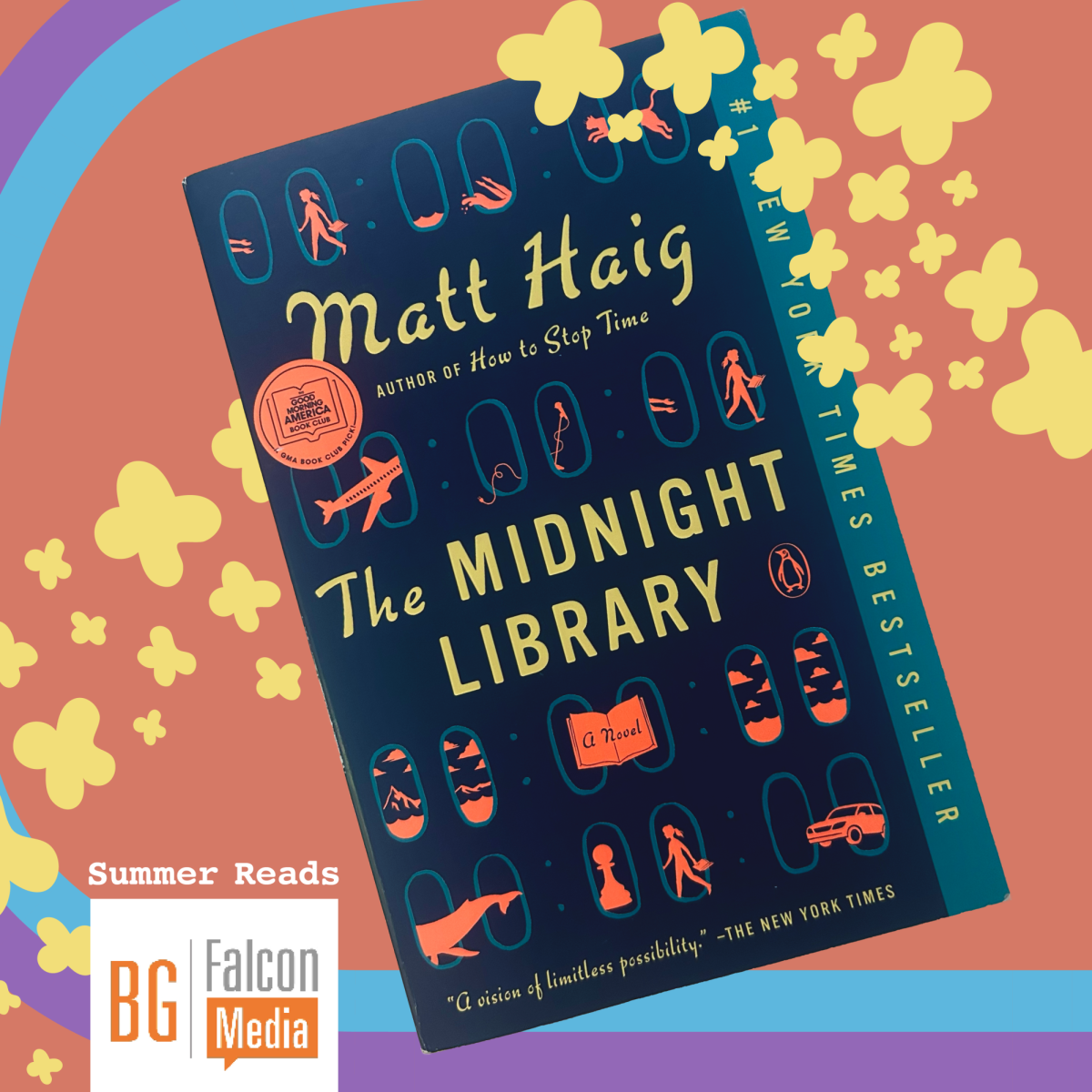Members of the University creative writing community listened to two faculty members share their writing in Prout Chapel Thursday night.
Brad Felver, a General Studies Writing instructor, read a short story, “How to Throw a Punch,” and a
short essay.
The story was inspired by Felver’s summer working in a Honda plant and featured a euchre-playing factory worker convinced that the unnamed protagonist stole the king of spades from his deck of cards. Though the protagonist doesn’t have it, the worker tasks him with finding the card by the end of the shift. Knowing this is impossible, the protagonist spends his shift preparing to punch the other worker.
The essay was about an enormous tree, “a sort of Midwestern lighthouse” on Felver’s family’s farm. It was nicknamed the “taking tree” due to how often balls and other toys became lodged in the tree’s high branches.
Lauren Boulton, a master of fine arts student who attended, noticed the Midwestern influence in Felver’s writing and that of Dan Rzicznek, the second reader and a GSW instructor.
“They’re both really Midwestern writers in their aesthetic … and they’re from here. I think it’s really cool that the Midwest is developing this voice and they’re kind of supporting that,” Boulton said.
One of Rzicznek’s poems was influenced by the recently developed former farmland that his parents live on. While walking one day, he found an old piece of a plow.
“Now it’s a doorstop in my office and I look at it all the time and it makes me think of home,” Rzicznek said. “One night I kind of bumped into it in the dark and it fell over and crushed my big toe.”
As a result, he wrote a poem called “If you Injure the Left Side of Your Body.”
Inspirations for poems can come from just about anywhere – “whatever seems to stick in my brain,” Rzicznek said. That includes television, which Rzicznek told listeners not to discount. “Watch TV. There’s weird stuff happening on TV.”
He mentioned the show “Airline,” a reality show that took place in airports. One passenger arrived with blood coming out of his duffel bag.
“They found this huge bag of horse blood,” Rzicznek said. “And he said he was using it for medicine …. Whatever his background was, he believed that this horse blood could somehow be used as medicine. So I had to write a poem called ‘Horse Blood Medicine.’”
Rzicznek’s other influences include books, things his students say and anything else he encounters.
Boulton was familiar with some of Rzicznek’s work before attending, but said hearing it was different than reading it.
“It was really lovely to hear it out loud, especially because he has such a great speaking voice.”













